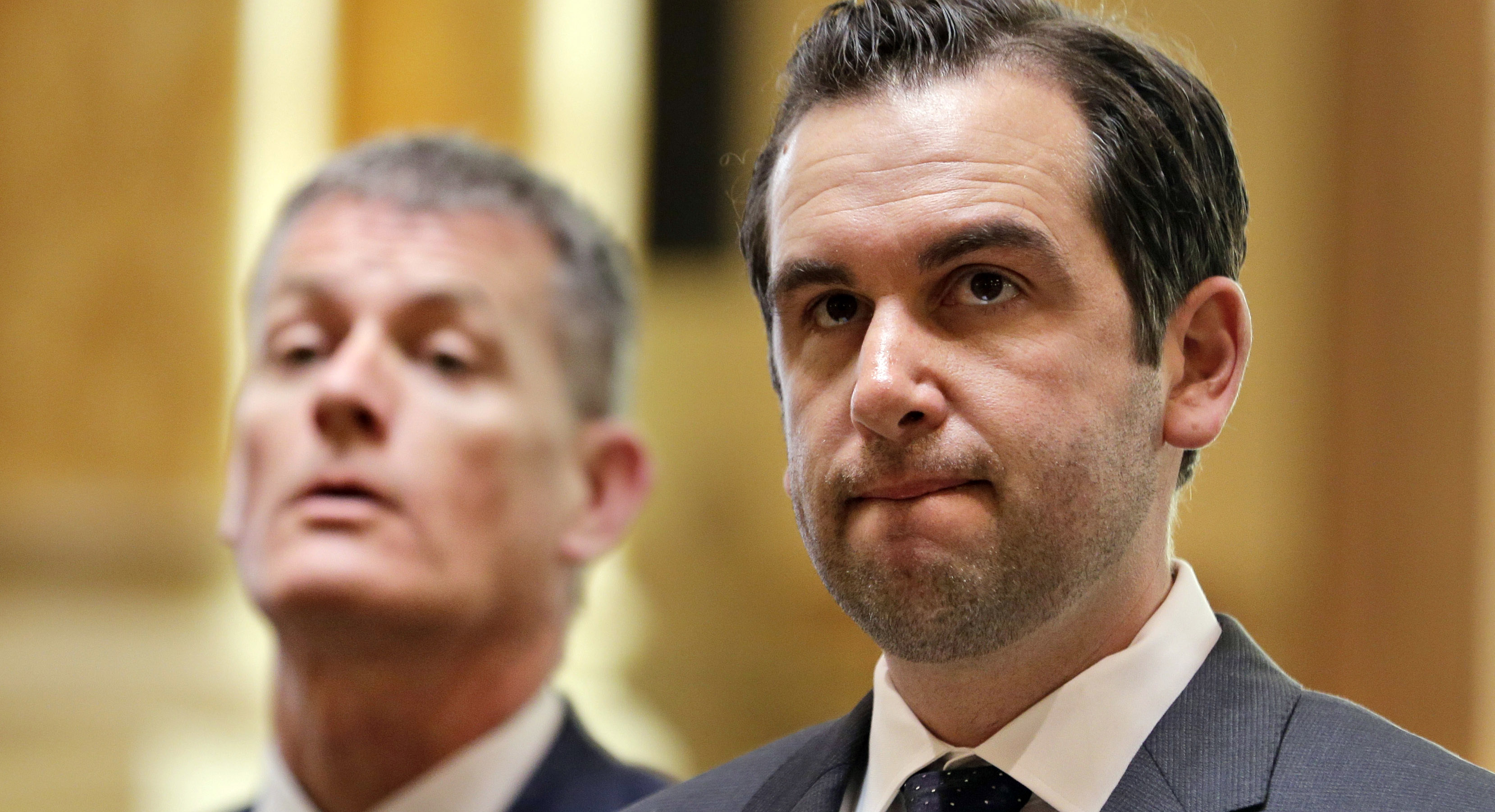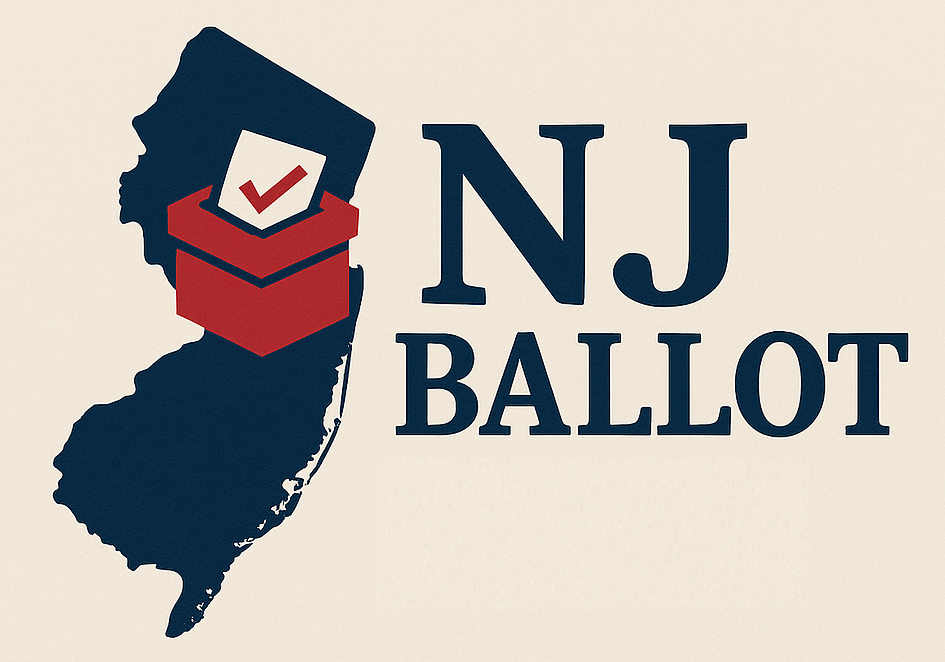As New Jersey’s 2025 gubernatorial race heats up, voters deserve a clear look at the controversies surrounding the top candidates. While some issues are tied to long-standing political relationships, others involve recent legal battles, ethical concerns, or polarizing rhetoric. Here’s a breakdown of the major candidates and the controversies that could shape how voters view their campaigns:
DEMOCRATIC CANDIDATES
Mikie Sherrill
- Campaign Finance Complaint Filed by Fulop Campaign
In January 2025, Steven Fulop’s campaign filed a complaint with the New Jersey Election Law Enforcement Commission (ELEC) alleging that Sherrill misused federal campaign funds to support her gubernatorial bid, potentially circumventing state fundraising limits.
Why it matters: The complaint raises concerns about adherence to campaign finance laws and the integrity of the electoral process. - Missed Vote on Controversial Immigration Bill
Sherrill, along with fellow Congressman Josh Gottheimer, missed a vote on the Laken Riley Act, a bill aimed at tightening immigration enforcement.
Why it matters: Their absence drew criticism from constituents and advocacy groups, questioning their commitment to immigration issues. - ‘Present’ Vote on Antisemitism Resolution
Sherrill voted “present” on House Resolution 894, which condemned the rise of antisemitism in the U.S.
Why it matters: The abstention led to scrutiny regarding her stance on antisemitism, though supporters highlight her consistent advocacy for the Jewish community. - Criticism of Congestion Pricing Plan
In 2023, Sherrill publicly opposed New York City’s congestion pricing plan, labeling it a “greedy cash grab” from New Jersey commuters.
Why it matters: Her stance underscores regional tensions and her commitment to protecting New Jersey constituents’ financial interests.
Stephen Sweeney
- Ties to George Norcross
Sweeney has long been politically allied with South Jersey power broker George Norcross, who was indicted in 2024 on racketeering charges.
Why it matters: Voters concerned about machine politics and corruption may view Sweeney as part of an entrenched insider system resistant to reform. - Support for pension rollbacks
As Senate President, Sweeney supported public pension reductions during the Christie era.
Why it matters: Public workers and unions see this as a betrayal, potentially costing him support among labor groups and Democratic base voters.
Sean Spiller
- $35M union-funded campaign
Spiller’s gubernatorial run is backed by a $35 million fund tied to the NJEA, where he serves as president.
Why it matters: Raises ethical concerns about a conflict of interest and whether union dues are being inappropriately used to support his personal political ambitions. - Alleged coordination with PACs
Watchdog groups question whether Spiller’s campaign is illegally coordinating with independent expenditure groups.
Why it matters: If coordination were proven, it could violate campaign finance laws and suggest disregard for transparency.
Ras Baraka
- Praise for Louis Farrakhan
A 2004 video resurfaced showing Baraka praising Nation of Islam leader Louis Farrakhan.
Why it matters: Farrakhan has been widely condemned for antisemitic and anti-LGBTQ+ remarks. Baraka’s past praise could alienate moderate voters and civil rights advocates.
Josh Gottheimer
- Support for the ‘county line’ ballot system
Gottheimer defended New Jersey’s ballot design that gives party-endorsed candidates top placement.
Why it matters: Critics say it undermines democracy and blocks challengers from gaining visibility in primaries. - Super PAC funding transfers
His congressional campaign sent nearly $10 million to super PACs now supporting his gubernatorial bid.
Why it matters: Legal but controversial — it raises red flags about exploiting finance loopholes and avoiding contribution caps. - Missed immigration bill vote
Gottheimer missed a vote on the Laken Riley Act, which addressed immigration enforcement.
Why it matters: Opens him to criticism for avoiding a politically sensitive issue, potentially frustrating voters on both sides. - Faked Spotify stats
He admitted to altering his Spotify Wrapped to show only Bruce Springsteen tracks.
Why it matters: Seen by some as inauthentic pandering to New Jersey voters and an example of image manipulation.
Steven Fulop
- Fired aide over political donation
Fulop terminated an LGBTQ Task Force aide who donated to his conservative sister’s campaign, prompting a First Amendment lawsuit.
Why it matters: A judge allowed the free speech claim to proceed, raising serious concerns about political retaliation and workplace rights. - Dealings with Kushner Companies
Fulop initially supported the One Journal Square development but pulled support after controversy over Jared Kushner’s family pitching foreign investors. Kushner sued, claiming retaliation.
Why it matters: While the lawsuit was dismissed, critics say the flip-flop revealed inconsistency and raised questions about favoritism and transparency. - Pay-to-play and contract favoritism
Fulop’s campaign has been accused of receiving contributions through straw donors and awarding contracts to politically connected insiders.
Why it matters: Allegations of political favoritism and corruption damage public trust and reinforce concerns about insider dealing. - Media suppression lawsuit
The Jersey City Times sued Fulop’s office after allegedly being cut off from press materials for critical coverage.
Why it matters: Suggests an intolerance of media criticism and raises concerns about press freedom in a Fulop-run administration. - Sexual harassment cover-up
A former employee accused the administration of failing to act on harassment claims against a top ally.
Why it matters: Mishandling serious allegations can reflect poor leadership, legal liability, and a lack of accountability. - Contract dispute with city union
Fulop’s administration is in a high-profile standoff with a municipal union.
Why it matters: Draws attention to his leadership style and labor negotiation track record, which may carry over to state-level governance. - Tax abatement for Pompidou project
Fulop pushed through a 30-year tax abatement for the developer of the Centre Pompidou x Jersey City project — despite a $67.5M state grant being pulled over fiscal concerns.
Why it matters: Critics say the deal favors wealthy developers while diverting funds from essential city needs. Opponents argue it shows fiscal irresponsibility and misplaced priorities.
REPUBLICAN CANDIDATES
Bill Spadea
- COVID misinformation & 2020 election denial
Publicly questioned vaccines and the legitimacy of Biden’s election.
Why it matters: Ties him to conspiracy rhetoric and undermines public trust in institutions. - Nonprofit spending concerns
His nonprofit, Common Sense Club, spends less than 1% on supporting candidates.
Why it matters: Raises questions about donor transparency and the group’s true purpose. - Campaign benefit from radio show
Accused of using his NJ101.5 radio platform to boost his campaign.
Why it matters: Could violate equal-time rules and give him unfair media exposure. - Fundraising tactics involving out-of-state donors
Reports indicate that Spadea’s campaign received multiple donations from individuals who were unaware they had contributed, raising concerns about fundraising practices.
Why it matters: Suggests potential issues with donor consent and campaign finance ethics. - Association with controversial figures
Hosted and supported individuals with histories of racist remarks, leading to criticism of his judgment and associations.
Why it matters: Reflects on his values and the company he keeps, which may influence public perception.
Jack Ciattarelli
- Participation in “Stop the Steal” Rally
Ciattarelli spoke at a November 2020 rally in Bedminster, which was promoted as a “Stop the Steal” event. Despite video evidence showing him speaking in front of related signage, he later claimed he was unaware of the rally’s theme.
Why it matters: Raises concerns about transparency and alignment with election denial movements. - Controversial LGBTQ+ Curriculum Remarks
In 2021, Ciattarelli criticized New Jersey’s LGBTQ+ inclusive curriculum, stating, “We’re not teaching sodomy in sixth grade,” and pledged to roll back such educational content.
Why it matters: His comments were condemned by LGBTQ+ advocates as inflammatory and potentially harmful to inclusivity efforts. - Use of Sexual Assault Survivor’s Testimony in Campaign Ad. Campaign featured Katie Brennan’s legislative testimony in an attack ad against Governor Murphy without her consent. Brennan publicly denounced the ad, stating it was inappropriate and traumatizing .
- Why it matters: Raises serious ethical questions about consent and the use of personal trauma in political messaging.
Final Thoughts
New Jersey’s 2025 gubernatorial race isn’t short on controversy. From federal finance complaints to press suppression lawsuits and ideological clashes over education and public health, each candidate brings not only policy positions but personal and political baggage that voters must weigh carefully.
As the primaries draw closer, expect increased scrutiny, more opposition research dumps, and sharper contrasts drawn—not just on the debate stage, but in courtrooms, finance reports, and public opinion.
Sources:
- NJ Election Law Enforcement Commission (ELEC)
- New Jersey Globe
- Politico NJ
- NJ Advance Media / NJ.com
- SaveJersey.com
- Federal Election Commission
- [Public records and court filings]



Great analysis of the controversies surrounding the 2025 NJ gubernatorial candidates. It's crucial for voters to have this full context to make an informed decision. Reading about the various allegations, particularly the campaign finance complaint filed by the Fulop campaign against Mikie Sherrill, made me think about the importance of transparency and the ethical use of resources. This might be a bit off-topic, but it reminded me of a recent discussion about the ethical sourcing and use of medications, which is a different kind of accountability. For instance, I was recently researching a medication and came across a resource that details its uses, side effects, and availability in different countries to ensure safe and informed access. It's a similar principle of needing clear, accessible information, whether in politics or public health. Here's the link to that resource for anyone interested in that kind of transparency: https://pillintrip.com/medicine/fulopin How do you think the average voter can best navigate the complex financial and ethical allegations being made between these campaigns to get to the truth?
Reply